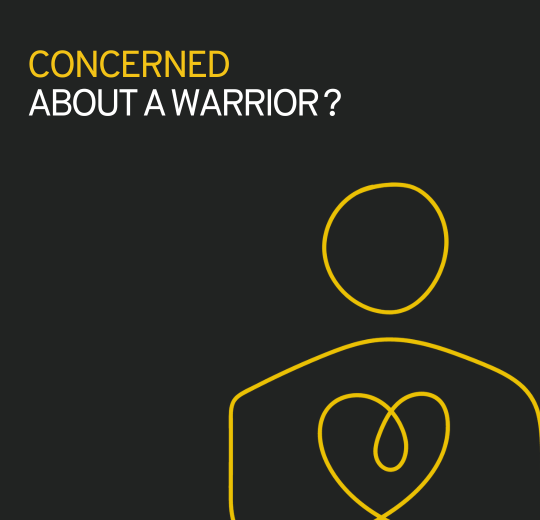

At Stanislaus State, we make taking care of our community a priority. Please review the following guide to learn how action can be taken to help campus community members in distress. StanCares is here to help and provide support.
Indicators of Distress
If you have a concern, share it with us.
A person's behavior, especially if it changes over time, may be an indicator of distress. You might be the first person to recognize signs of distress, especially if you have frequent or prolonged contact with a student.
Trust your instincts if someone leaves you feeling worried, alarmed or threatened.
Indicators
- Unprovoked anger or hostility
- Implied or direct threats to harm self or others
- Stalking or harassing
- Your gut feeling that there is a safety risk
- Self disclosure of distress (relationship/family issues, grief, suicidal thoughts, etc.)
- Excessive tearfulness, worry, anxiety, panic, fear, irritability, or apathy
- Extreme mood changes; extreme highs and lows
- Verbal abuse
- Concern from peers
- Marked changes in physical appearance, grooming, hygiene, or weight
- Excessive fatigue or sleep disturbances
- Intoxication, disorientation, or smelling of alcohol and/or other drugs
- Sudden decline in quality of work or grades
- Avoiding friends or social situations
- Problems concentrating or learning
- Repeated absences
- Bizarre content in writings or presentations
- Repeated classroom disruptions
Contact StanCares
The StanCares team reviews reports to assess information about whether a student, campus community member, group or situation poses a threat, and determines a course of action to support them.
The team assists with intervention, follow-up and support to campus community member before escalation.

Helping Warriors in Distress
FERPA (Family Educational Rights and Privacy Act) permits communication about a student of concern in connection with a health and safety emergency. Observations of a student's conduct, or statements made by a student may be shared with administrators, campus police, the counseling center, or other Stan State faculty and staff in order to promote student and campus safety.
Contact the Student Health Center (medical), CAPS (counseling services), StanCares, or the University Police Department for consultation on the seriousness of the situation, as well as strategies for how to best support the person.
Always document your interactions with distressed students and consult with your department chair/supervisor after any incident.
Act sooner rather than later, and remember-safety first! If you are concerned for your own safety or the safety of others, do not hesitate to call 911 or University Police on the Turlock Campus at (209) 667-3911, or Securitas on the Stockton Campus at (209) 715-0740.
A student with persistent behavior such as:
- Overly anxious
- Sad
- Irritable
- Withdrawn
- Confused
- Lacks motivation
- Seeks constant attention
- Demonstrates bizarre or erratic behavior
- Expresses suicidal thoughts
Let them know you are concerned and would like to help. Allow them to discuss their thoughts and feelings to help relieve pressure.
- Avoid offering lots of advice or solutions.
- Provide information about counseling services. Call CAPS first at (209) 667-3381, and if the student is willing, and you are comfortable, you can offer to walk them over to Student Services Annex, SSX1.1 or provide a space for them to have a private virtual appointment.
A student whose conduct is clearly reckless, disorderly, dangerous or threatening, including self-harmful behavior.
- Ensure the safety of yourself and those present.
- Use a calm, non-confrontational approach to defuse and de-escalate the situation.
- Explain how the behavior is inappropriate; if the behavior persists, notify the student that disciplinary action may be taken. Ask the student to leave. Call 911 if there is a safety risk.
- Immediately file a StanCares report.
Response Protocol
Is the student a danger to self or others, or do they need immediate assistance for any reason?
Yes
The person's conduct is clearly and imminently reckless, disorderly, dangerous, or threatening, including self-harm or a medical emergency.
Call 911
OR
Call Turlock University Police Department: (209) 667-3114
OR
Call Stockton Securitas: (209) 715-0740
Not Sure
The person shows signs of distress, but I am unsure how serious it is. My interaction has left me feeling uneasy or concerned.
OR
Call StanCares: (209) 664-6700
No
I'm not concerned for the other person's immediate safety, but they could use some support or resources.
OR
Encourage them to visit Counseling and Psychological Services (CAPS) if appropriate.
Campus Resources
Basic Needs
Mary Stuart Rogers Building, Suite 180
basicneeds@csustan.edu
(209) 667-310
Student Health Center
Student Health Center Building
(209) 667-3396
Counseling and Psychological Services
Student Services Annex, SSX1.1
CAPS@csustan.edu
(209) 667-3381
Title IX Resources
compliance@csustan.edu
(209) 667-3868
Victim Advocate
compliance@csustan.edu
(209) 667-3868
University Police
Campus Services Building
public_safety@csustan.edu
(209) 667-3114
Dean of Students - Turlock
Mary Stuart Rogers, Suite 180
studentaffairs@csustan.edu
(209) 667-3177
Dean of Students - Stockton
Acacia Court, Office 1034
amckinney4@csustan.edu
(209) 513-9406
Updated: April 12, 2024